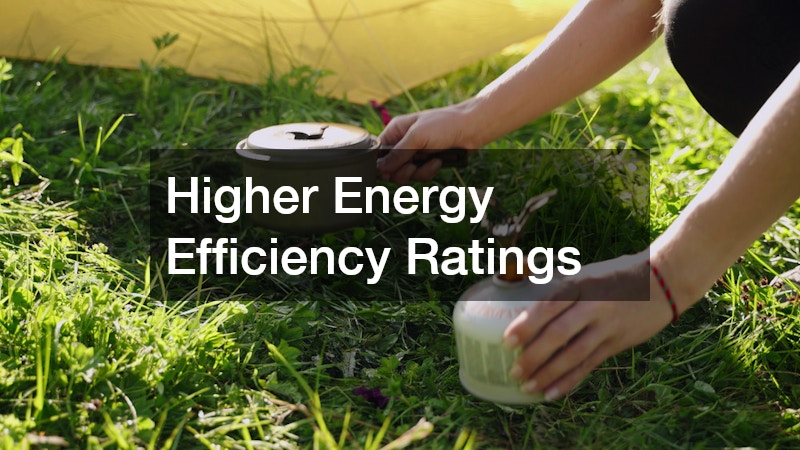Propane services have gained increasing attention due to their potential cost savings and energy efficiency. As an alternative energy source, propane can provide substantial financial relief compared to traditional options. This article explores the numerous benefits of propane services, including cost advantages, energy efficiency, and safety benefits, advocating for wider adoption in residential and commercial sectors.
Lower Fuel Costs
Propane offers a significant reduction in fuel costs when compared to electricity and natural gas. Since propane prices tend to be more stable, households and businesses can budget more effectively. Over time, the savings on fuel costs alone can be substantial, making propane a smart choice for cost-conscious consumers.
The cost of propane is often lower because it requires less energy to produce heat compared to electricity. This efficiency translates to less money spent on energy bills over time. Additionally, the localized production and distribution of propane often mean fewer overhead costs, reducing the price passed to the consumer.
Long-Term Savings on Appliances
Propane appliances generally come with a longer lifespan, providing extended value and reducing replacement costs. The maintenance expenses for these appliances are typically lower than their electric counterparts, yielding additional cost savings over time. Choosing propane-powered systems could mean less frequent repair and maintenance bills.
Because propane appliances tend to be more durable, the longevity they offer contributes significantly to long-term savings. As such, users can avoid both the frequent payouts associated with repairs and the inconvenience of regular appliance downtime. When considering the total cost of ownership, propane appliances present a compelling financial advantage.
Higher Energy Efficiency Ratings
Propane appliances often achieve higher energy efficiency ratings compared to their electric counterparts. Units such as propane water heaters and furnaces operate with greater efficiency due to their design and the fuel’s chemical properties. This translates to less energy wasted and more effectual use of resources.
The inherent efficiency of propane significantly impacts energy consumption. As a cleaner-burning fuel, less propane is needed to achieve the same thermal output provided by other energy sources. This optimized energy usage can considerably reduce overall utility expenses and fossil fuel dependency.
Reduced Environmental Impact
Propane is recognized for its lower environmental impact compared to other fossil fuels. It burns cleaner, producing fewer greenhouse gases and reducing air pollutants. In fact, the transition to propane in homes and businesses contributes positively to sustainable energy practices.
These environmental benefits align well with ongoing efforts to mitigate climate change. The reduced carbon emissions from propane usage can be substantial, especially in regions previously reliant on coal or oil. This positions propane as a strategic green alternative in global energy discussions.
Advanced Technology and Installation Options
Modern propane systems integrate advanced technologies that optimize energy consumption further. These systems allow for enhanced energy monitoring and use advancements such as smart meters and thermostats for better resource management. The adoption of such technology empowers users to maximize energy savings.
Propane service providers offer a range of installation options tailored to different needs, further enhancing efficiency. Customizable solutions ensure that energy use is optimized for each specific application, whether residential or commercial. This adaptability supports not just energy efficiency but also user convenience and performance.
Built-in Safety Features
Propane systems are equipped with myriad safety mechanisms designed to minimize risk and ensure secure operation. Features such as automatic shutoff valves and pressure-relief devices are standard. These built-in safety measures are pivotal in preventing potential hazards associated with propane usage.
The industry has established strict guidelines and regulations to enhance the safety of propane systems. Regular updates and improvements to these standards ensure that systems remain state-of-the-art. This emphasis on safety makes propane a reliable choice for households and businesses alike.
Proper Installation and Maintenance Procedures
Professional installation and maintenance are crucial to maximizing both the safety and efficiency of propane systems. Certified technicians ensure that systems are correctly installed and adhere to all safety regulations. This lays the foundational guarantee for the secure operation of propane appliances.
Routine maintenance conducted by qualified professionals is also vital. Regular checks help detect potential issues before they escalate into major problems, thereby preventing costly repairs and potential safety risks. Proper upkeep safeguards the investment in propane systems by keeping them in optimal working condition.
Emergency Protocols and Support
Propane service providers frequently offer comprehensive emergency support and protocols to address unforeseen circumstances. This includes emergency shut-off instructions and readily available customer service for urgent assistance. Such proactive safety measures highlight the reliability of propane as an energy source.
In conclusion, propane services present compelling advantages in terms of cost savings, energy efficiency, and safety. By leveraging lower fuel costs, government incentives, efficient technologies, and stellar safety records, propane emerges as a front-runner among energy options. With its numerous benefits, propane stands as a viable alternative deserving further exploration and adoption on a wider scale.




